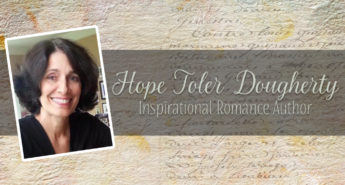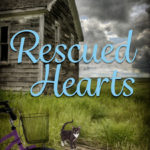This week has been a hard week in the United States.

On Monday I saw a comment on a Facebook post of someone I consider like a son. (Let’s call him Joe.) I have two white biological sons, but I feel like I have several non-white, adopted ones as well. All of these young men who are in their mid-twenties now grew up in youth group together with our children. They’ve been to our house, shared holidays and vacations, and slept over. We gave two a place to live for over a year. We’ve counseled them, worshipped with them, proofread college papers for them, mourned with them when they lost relatives, and celebrated graduations and new jobs with them.
I yelled at one of them once because he ran out of gas after we told him about keeping the car filled up. He said he wanted to be treated like Anna, Hattie, Lane, or Quinn, so that day he received a dose of irritated Hope because I was the one who had to pick him up from the side of the road.
Up until this week, however, we’ve never had a real conversation about race with them.
The reply to the original post went something like “They all ‘LOVE’ you, as long as…” They in this post referred to white people, but it was the love and the as long as that got me. The words pierced me. I wondered if the writer of the post, a young woman who’s also been to our house and invited us to her wedding, clumped me into the group of they. I wondered if I’m regarded as insincere or fake.
That same night, we had Joe over for dinner. He talked for a long time about his experiences which include hearing people in his mostly-white church tell him, “We like you, Joe. You’re not like other black people,” and being frustrated that he can’t talk about race because he leads a ministry, yet others in leadership can talk about being a redneck–a hurtful word to a lot of African Americans, and being petrified to be pulled over by a law officer because he has a concealed carry permit and a gun in his car. He told us about a real incident. After checking that everything was in order and before letting Joe go, the officer, who looked as scared as they felt, took the gun apart and tossed it into the back seat.
When Joe told me he had bought a gun, I thought, “Oh, no.” Not because Joe is irresponsible or stupid or a hothead because he isn’t. I thought, “Oh, no. People who don’t know him as a smart, musically-gifted, Jesus-loving, funny person will see him as a black man with a gun.”
The next morning, I messaged a high school friend a few lines. She wrote back several paragraphs explaining about being the only black family in her cul-de-sac and seeing hurtful political signs in yards, being the only black woman in a community women’s group and reading insensitive Facebook posts by one of the other members about the protestors. She mentioned that her son is afraid to go jogging, and she’s afraid for him.
I texted one of my parents’ caregivers to ask for the first time about her children.
I stood at the deli counter of a grocery story and listened to two friends talk about their sons, and they let me cry then offered comfort to me.
To all of them and more, I apologize.
I apologize it took the murder of a black man in broad daylight in front of I-don’t-know-how-many people to shake me to the core.
Finally.
I thought I knew. I thought I understood, but until this week I had not begun to understand.
My heart is broken.
I am so sorry.
I promise I have been changed.





I agree on all levels! We have much to learn about ourselves and others during these times. Unconditional love is a great place to start!
Thanks for reading, Emily!
I believe how we view people who are different from us, and I am speaking of racial, religious, locality, age, etc. is something embedded in us from our family and neighborhood during our childhood years. Our fabric. I believe we can change our beliefs through experiences and reading. I can not walk in someone else’s shoes. I can appreciate cultural differences. I can listen and learn.
Yes, listen! Thanks for reading, Melissa!
Thank you for sharing this. I can relate to it all. It breaks my heart that it has taken seeing this man die to make me fully aware of what I have not known.
Thank you for sharing this. I can relate to it all. It breaks my heart that it has taken seeing this man die to make me fully aware of what I have not known and cannot fully understand.
Thank you for reading and responding, Susan. We need to do more than talking and listening, but it’s an important beginning point; in fact, I met with the African-American, male police chief of my town yesterday. We’re working toward more community-wide talks as soon as more pandemic restrictions lift. I appreciate your response.